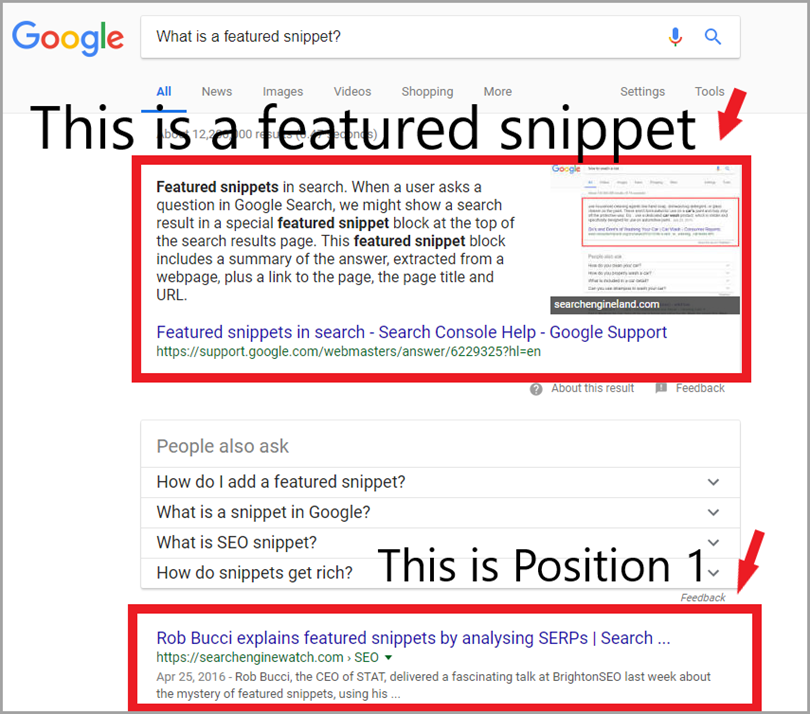Are you a website owner? So I will tell you, How to Optimize Your Website for Google Search in 2022. So if you want to get complete information about it, then keep reading this article completely. So let’s get started.
As you all know, in today’s time everyone is making their website, but how to optimize it, so that your website gets ranked on Google and other search engines. And your content can also be ranked on search engines.
Irrespective of the industry, ranking high on the SERPs when customers search for things relevant to the products or services your enterprise is offering can give you a massive competitive advantage. Moreover, in a recent study by HubSpot, it was found that 75% of users never scroll past the first page of the SERPs. So ranking on the first page for high-value keywords is crucial.

SEO helps boost site traffic and attract more leads. But since Google’s ranking algorithm is constantly changing, there is no proper way of telling what the ranking factors are. Nevertheless, SEO experts have cut close and figured out the key factors that affect SERP rankings. If you want to know more, read on as we delve deeper into ways to optimize your site for Google updates in 2022.
Table of Contents
How to Optimize Your Website for Google Search in 2022: The A-to-Z Guide!
Monitor and Analyse the website’s performance with Google Analytics and conduct regular SEO audits.
Google Analytics is a vital weapon in your arsenal when it comes to SEO. With Google Analytics, you can easily keep tabs on conversions and sign-ups on your website, and other important factors such as keywords, site speed, traffic trends, etc. Also, Google lays a lot of emphasis on a good user experience and ranks sites with a better UX higher up on the SERP rankings.

A website with a good user experience entails low bounce rates, faster loading times, long dwell times, and higher click rates. You can study all these metrics on Google Analytics.
A comprehensive SEO audit is the next step to seamless website optimisation for a higher SERP ranking. An SEO audit helps you study the technical infrastructure of your website and determines how well your website relates to the best SEO practices. This is the stepping stone to formulating an implementation plan for higher ranking on SERPs. With a detailed SEO audit, you can easily find out important information like user experience issues, content gaps, and so on. Conduct an SEO audit regularly to keep your SEO strategy up to date.
1. Focus on User Experience (UX)
1. Site structure and UX
Let’s say you follow the best possible SEO practises and publish high-quality web content. Even if it does get ranked high, it will be of little use if your site is tricky to navigate. Therefore, it is of the essence that you design a website that follows a hierarchical flow and creates a seamless navigational experience.
A good user experience might be the key to people sticking around on your website for longer. Google interprets this as a positive factor, thinks that your site is helpful to the audience, and boosts your ranking on the SERPs. Moreover, make your site SEO friendly with these few basic rules,
- Keep website URL short and include keywords in it.
- Implement simpler navigation around your website.
- Include sitemap
- Rid your webpage of duplicate content.
2. Mobile optimisation
All-out mobile optimisation is critical in 2022, since Google has now implemented mobile-first indexing. This means that the mobile versions of many sites are considered more useful than desktop versions. The above fact stands true in all senses and can be proved by a study conducted by Broadband Search. The study states that in 2019, a total of 53.3% of Google’s net traffic stems from mobile devices.
Mobile responsive design has to be a compulsion while designing any website. You can also use Google’s mobile usability test tool to understand where your website needs improvement.
3. Site speed

Today’s web users are impatient. With the significant soars in mobile and voice search rates, the use of a search engine to find quick answers to their day-to-day questions has increased. Therefore, it is of the essence that your webpage is optimized enough to load as fast as possible. Slicing off a few microseconds can also make a world of difference to your website load time. Therefore, if you are planning a website revamp, make sure that speed is on top of your list.
2. Establish authority
1. High-quality backlinks
Backlinks can be the backbone of your Google rankings in 2022. This is mainly because they are the foundation of Google PageRank, a website ranking algorithm made by Google. PageRank is at the center of Google’s ranking algorithm. PageRank hasn’t received any updates in quite some time, but Google admitted that they still use it.
A well-thought-out link-building strategy will help Google assess your authority and help users find your content. While a higher number of backlinks is beneficial, simply including a plethora of them won’t do the trick. Make sure that you include links from sites with high authority and quality.
2. Site authority
Establishing authority in your niche on Google is important to make it to the first SERP. But why so? Well, Google employs people to manually go through all websites on the first page of the various searches. These people rate the pages based on the guidelines provided by Google itself. They determine your EAT rating (Expertise, Authority, and Trustworthiness).
You can demonstrate your website authority in a couple of ways, namely,
- Publish author bios with relevant experience and expertise
- Publish high-quality content and build a reputation over time
3. Business listings
Local SEO is of the essence, now more than ever. The prolific growth in the number of mobile phone users has forced all business owners to pay attention to their local SEO for better search engine results on a national, as well as global level. Therefore, make sure that your Google Business Profile listing has been set up and optimised.
Also, ensure that relevant local business directories have listed your business information correctly. Business directories will increase your web traffic and increase the number of incoming links.
3. Revisit your content strategy
1. Featured snippets

When a query is entered by the user on the Google search engine, a short excerpt from the rank one website is displayed on top of the SERP. This quick answer to a user’s query is called a featured snippet. They receive 8% of the total clicks pertaining to a given search query. There is no set path to earn the spot of the featured snippet, but follow the below-mentioned points to increase your chances.
- Produce high-quality and relevant content with long-tail keywords
- Check your content’s performance on Google Search Console
- Structure your content in an FAQ format and be comprehensive
It might take a while to reach the featured snippet stage, but you will see a prolific growth in organic internet traffic on your web page once you do.
2. Keywords
Including relevant keywords in the right places for the right number of times is of great essence for SERPs ranking. Although, Google algorithms are much smarter now and expect a lot more from content writers. If you simply fill the content with keywords whilst lacking real value, then the search engine won’t bat an eye towards your content, let alone give it a good ranking.
So, you need to conduct a comprehensive keyword analysis and formulate a proper content plan. Strategically place your keywords in titles, headings, and text body to increase your ranking. But remember, don’t force a keyword just for the sake of SEO.
4. Strengthen the technical aspects of your website
1. Domain security

One of the main contributors to your EAT rating is your domain security. That is why you must make the move from HTTP to HTTPS if you haven’t already. Google won’t direct users towards your website if it doesn’t protect their data. Therefore, domain security is a sign of trustworthiness. Other security measures include having an SSL certificate if your website collects user data. Also, you can even opt for DDoS and CDN protection.
2. Meta Data
Catchy headlines and informative metadata is crucial to getting more click-through rates. All this comes before the user actually opens your site. The metadata is like a teaser as to what sort of information the user will find on your website. Hence, it is of the essence to get this right.
3. Semantic HTML
Semantic HTML displays the structure of your webpage to the search engine, revealing all your content and laying out all your primary and secondary topics. It helps Google grasp the concept of your text and informs it as to how a block of text is related to the rest of the text. Therefore, use Content Management Systems (CMS) to create a page with proper semantic HTML.
Conclusion!
For businesses seeking to optimize their websites for Google updates in 2022, we have covered everything you need to know about inviting organic traffic to your website and increasing click-through rates above. Make use of this comprehensive guide to crack SEO and watch your website soar to new heights in the coming year.
Read also:)
- The Honest Seobility Review | All-in-One SEO Tools for Your Website!
- 5+ Best Keyword Research Tools for SEO: The A-to-Z Guide!
- How to Get Your Business Noticed on Google Search: The A-to-Z Guide!
So we hope that you liked our article “How to Optimize Your Website for Google Search in 2022“. And if you still have any questions and suggestions related to this, then you can tell us in the comment box below. And thank you so much for reading this post.